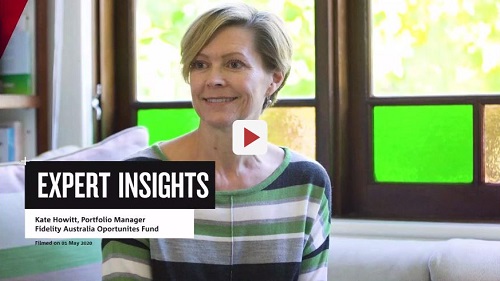After the longest bull market in history until early 2020, and record low volatility for several years, many investors may have been lulled into a false sense of security. The aggressive turnaround in market fortunes since March has seen a five-fold increase in volatility. Far from avoiding the market as a consequence, nabtrade has experienced a 300% increase in share trading volumes and a 500% increase in new investor applications. Retail investors have responded to the sharpest bear market on record, followed by another bull run of surprising speed.
Is this increase in activity wise or worrying?
Investors appear to have been waiting for a correction and many see this turnaround as an opportunity rather than a threat. The clearest sign that investors were not completely convinced by the market’s previous record highs was increasing levels of cash. At nabtrade, investors have been accumulating cash over the past five years, despite low rates, indicating that they were waiting for better buying opportunities when the sharemarket (or other asset classes) offered them.
Instead of selling as prices fell, as many pundits predicted, we saw a swift swing to the buys on nabtrade, after weeks of profit-taking through reporting season in February. This buying continued throughout March and into mid-April. Investors bought heavily in bank shares, which are now down approximately 45% from their highs, and continued to buy despite the deferral or reduction of dividends. They also bought enthusiastically in hard-hit travel stocks, including Qantas, Flight Centre, Webjet and Sydney Airport. Thankfully, Virgin was not among the popular buys and has only a small number of shareholders in the nabtrade investor base.
In addition, many investors were keen to cash in on lower share prices but didn’t have a strong view on which stock to buy, which led to aggressive buying in indexes, especially the ASX200 and S&P500 ETFs (listed in Australia).
Despite all the buying, investors were clearly open to the possibility that further falls are to come. The cash book continued to increase throughout March and April despite the buying, meaning that investors were bringing cash from other sources to ensure they could move quickly in the event of future share price falls in preferred stocks.
In other sectors, BetaShares’ three bear fund ETFs, offering a positive return when the ASX and S&P500 fall, were popular. In fact, they pushed the ASX200 ETFs, which usually dominate ETF purchases, off the top spot for turnover.
Spectacular falls in the price of oil led to large buys in oil ETFs, both in Australia and the US, and companies leveraged to the oil price. This has only slightly abated as volatility has dropped.
Other sectors that had previously been popular include the Buy Now, Pay Later space. Afterpay has been in nabtrade’s top 10 stocks for several years. After its heavy falls, investors bought the stock, but gladly took profits following the announcement of Tencent’s $300 million stake. Zip Co and SplitIt, having previously been popular, fell out of the popular buys and were replaced by PushPay.
Response to the rally
The recent rally in April, delivering the market’s best month in several decades, clearly concerned some investors. There was a slight swing back to the sells in the last week of April as investors took profits in companies that had had significant share price increases. But then the 5% drop on the first day in May brought the bargain hunters out again, further confirming the contrarian investing approach taken by many reatil investors.
Investors buying US shares directly have taken a slightly different approach. While still enthusiastic for value, they continue to prefer high-flying tech stocks such as Microsoft and Apple. As the Nasdaq is actually up in calendar year 2020, this part of the market appears to have weathered the Covid-19 crisis much better than others. Berkshire Hathaway is popular, as well as Tesla, despite its volatility. Particularly intrepid investors have been buying battered travel and cruise companies, including Carnival Cruises and Royal Caribbean.
Many share market gurus tout the benefits of contrarian investing for investors who have the stomach to buy when markets fall. Warren Buffett’s famous line about being fearful when others are greedy and greedy when others are fearful is one retail investors have committed to memory. Despite concerns about retail investors selling at the worst possible time or buying at the peak, this time around, it appears they have had the confidence to buy in a falling market and take profits in a bull run.
Additional content from nabtrade.
Video: Dividends, capital raisings and the outlook for the ASX
Fidelity’s Kate Howitt joins Gemma Dale to discuss why she believes Australia is privileged and her view on dividends and capital raisings.

Gemma Dale is Director of SMSF and Investor Behaviour at nabtrade, a sponsor of Firstlinks. Any statements as to past performance do not represent future performance. Any advice contained in this Information has been prepared by WealthHub Securities without taking into account your objectives, financial situation or needs. Before acting on any such advice, we recommend that you consider whether it is appropriate for your circumstances.
For more articles and papers from nabtrade, please click here.